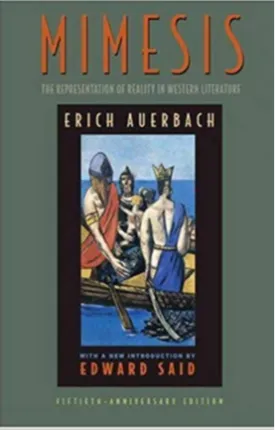Erich Auerbach
Erich Auerbach was a German literary scholar who is considered one of the most influential literary scholars of the twentieth century. He was born in Berlin in 1892 and grew up in a Jewish family. Auerbach studied classical and modern literature at the universities of Marburg, Berlin, and Strasbourg. He wrote his doctoral dissertation on the history of satire and his academic career focused on philology.
During World War II, Auerbach was forced to flee Germany, and he ended up in Istanbul, Turkey. While there, he worked as a professor at Istanbul University, teaching Romance philology. As he was mostly unable to access his scholarly works or materials related to the discipline of literary study, he focused on the literature and history of the Mediterranean region. Auerbach read deeply and wrote his famous book Mimesis: The Representation of Reality in Western Literature in Istanbul over the course of five years.
Mimesis is considered one of the most important books in literary studies. In it, Auerbach looked at the representation of reality in western literature, focusing particularly on distinctions between pre-Renaissance and medieval literature. He explored the differences in how characters were depicted, the differences in narrative technique, and how these ways of writing about the world were related to the culture's attitude towards Christianity. Auerbach argued that modern literature played a role in focusing more on the individual and their experiences in comparison to literature before the Renaissance.
Auerbach left Istanbul for the United States in 1947 and became a professor of Romance Philology at Yale. He published other works after Mimesis, including Figura and Scenes from the Drama of European Literature. In Figura he continued exploring the representation of reality and investigated the way religious symbolism was used in literature in order to create a figurative version of reality. Scenes from the Drama of European Literature was a larger work that looked at different periods of European literature, focusing particularly on the Middle Ages and Renaissance.
Auerbach’s works have had an important influence on the development of literary theory and continue to be read extensively by scholars. His books have been translated into many languages and continue to be taught in universities around the world. While Auerbach is no longer with us, his work will continue to be studied and appreciated for many years to come.

